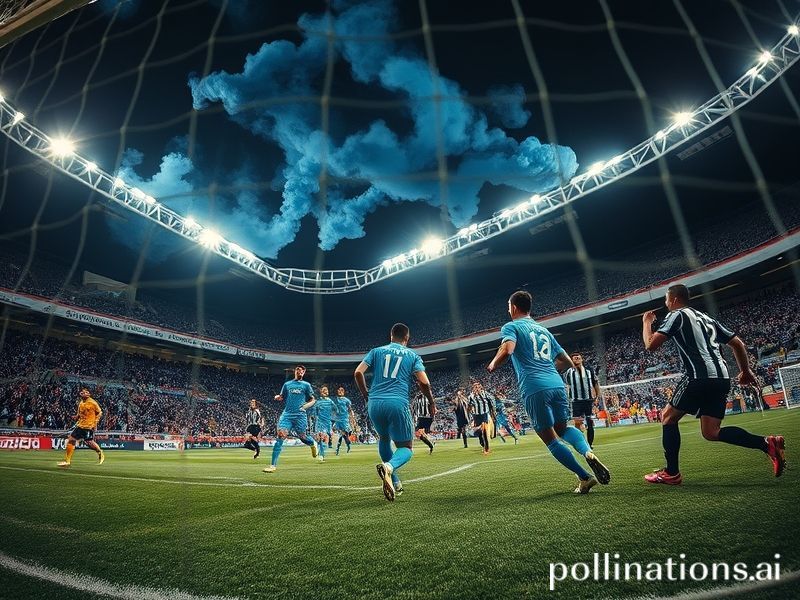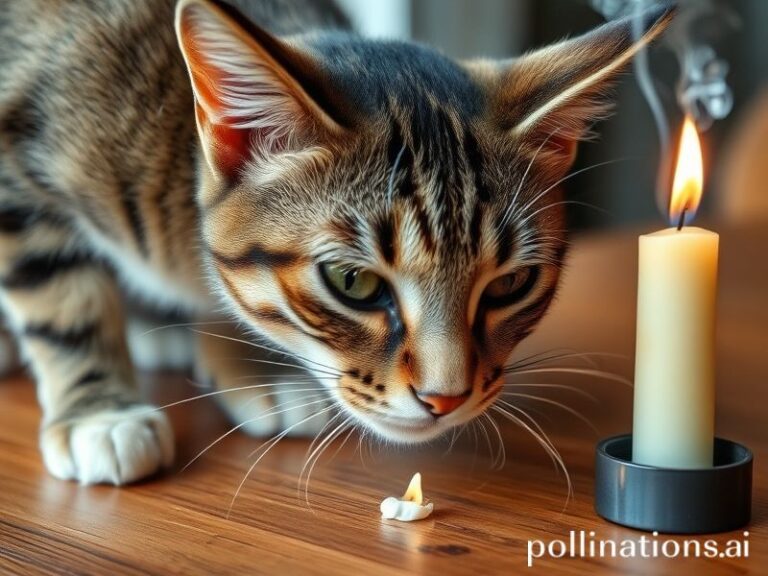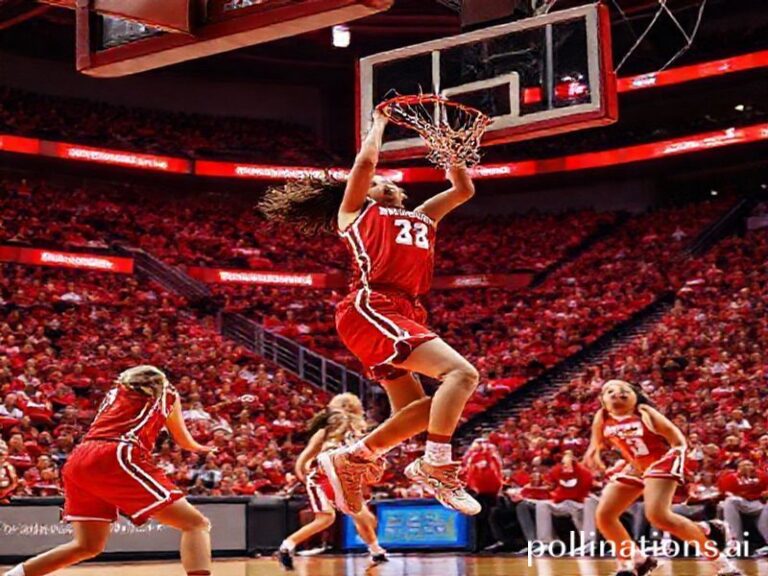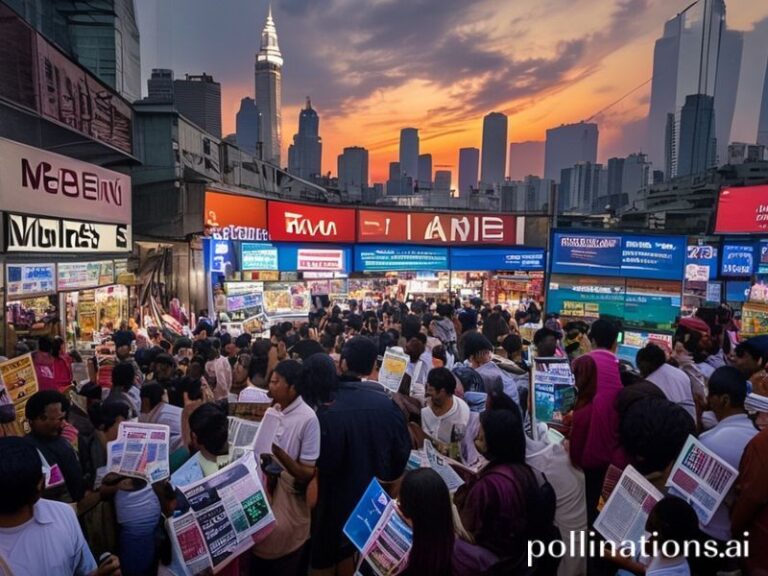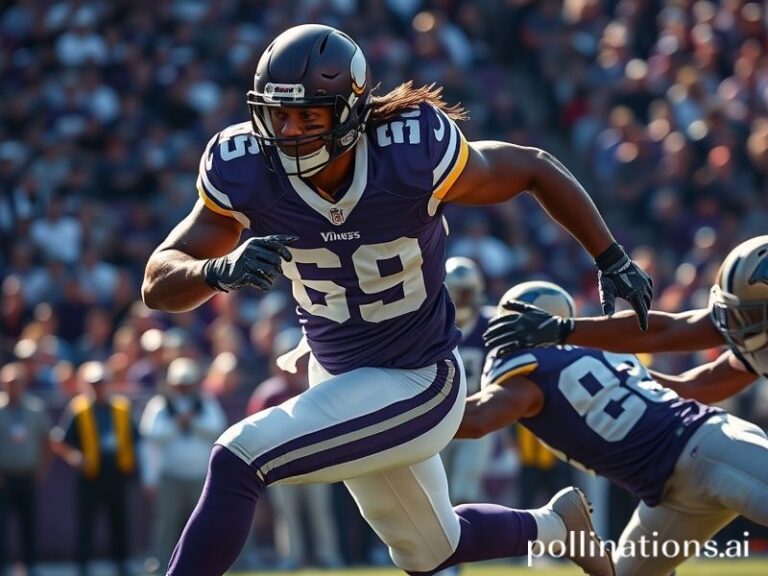Napoli vs Pisa: A Tiny Football War with Global Aftershocks and Italian Existential Dread
When Napoli Meets Pisa: A Glorious Micro-War in the Shadow of Bigger Collapses
Dave’s Locker – International Desk, 23 June 2025
In any other week, a Coppa Italia third-round tie between Napoli and Pisa would be filed under “regional eccentricity” and left to ferment beside the anchovies. But this is not any other week. The planet is busy renegotiating its own contract clause by clause—Ukraine’s grain corridor is flickering like a cheap fluorescent, China is stress-testing TikTok’s attention span, and somewhere in the Pacific an island nation just discovered its coastline on Airbnb. Against that backdrop, two Italian cities decide to reenact their 800-year grudge match on a rectangle of grass. How perfectly, absurdly human.
The fixture itself is a museum piece wrapped in neon. Napoli—last year’s Scudetto souvenir-holders, now coached by a man who looks like he’s permanently Googling “What did I just agree to?”—arrive with the swagger of a team that once made Guardiola blink. Pisa, meanwhile, is mathematically mid-table in Serie B, financially Serie C, and spiritually Serie “we’ll take the bus, thanks.” Their away allocation is 1,200 ultras plus one suspiciously well-dressed lawyer who keeps FaceTiming a Swiss bank. The global audience is modest, unless you count the Balkan betting syndicates, who treat this like the World Cup final played in a basement.
Yet the match matters, because everything matters when the world is rationing importance. Broadcast rights ping through satellites to Nigerian viewing halls where fuel prices are measured in goals conceded. A bar in Tokyo’s Shibuya district advertises “Neapolitan espresso + Pisan schadenfreude” for ¥900, cash only. In Buenos Aires, a Maradona mural is updated in real time: Diego now sports a Pisa scarf as a noose—dark, yes, but Argentinians have earned the right to dark. Somewhere in Silicon Valley, an AI sentiment engine flags the fixture as “moderately uplifting; deploy pizza emojis.”
Inside Stadio Diego Armando Maradona—renamed, naturally, the week he died—the geopolitics shrink to 105 × 68 meters of existential dread. Napoli’s ultras unveil a tifo depicting Galileo dropping a globe that bursts into NFTs, a gag so layered it needs a footnote and a therapist. Pisa’s response is simpler: a bedsheet reading “WE STILL LEAN.” The referee, imported from Luxembourg because neutrality is a luxury item, checks his watch like he’s timing the collapse of the euro.
The game itself is a 2-2 draw that feels like a tax audit played in fast-forward. Napoli’s Georgian winger scores a goal so beautiful the Kremlin briefly pauses an airstrike to applaud. Pisa equalizes via a penalty so soft it could bruise a peach. In the 73rd minute, floodlights dim—someone forgot to pay the electric bill, or maybe the bill forgot to pay itself. Fans illuminate the pitch with phone flashlights, creating the world’s largest hostage video. Extra time looms like a second date you already regret.
Then, the moment that will be replayed in every crisis-management seminar: Pisa’s 19-year-old striker, on loan from Watford and therefore doubly cursed, chips the keeper from 40 yards. The stadium falls silent, not from awe, but from the collective realization that miracles are now priced in cryptocurrency. Napoli equalizes in the 119th minute because narrative symmetry is all we have left. Penalties follow; Pisa misses two, because leaning only gets you so far. Napoli advances, the ultras sing, and the Swiss lawyer pockets his phone—mission accomplished, whatever the mission was.
Back outside, Naples smells like fireworks and unpaid parking tickets. The global feed cuts to a commercial for carbon offsets narrated by a polar bear wearing Ray-Bans. Somewhere in the algorithm, the match is already archived under “pre-apocalyptic comfort content.” And perhaps that’s the real significance: in a world auctioning off its future by the kilo, two underfunded provinces still find the budget for drama. They lean, they swagger, they miss penalties—then they do it all again next Thursday, because the alternative is reading the news.
So toast the draw, dear reader. History won’t remember it, but your group chat might. And if that’s not international relevance in 2025, I don’t know what is.

